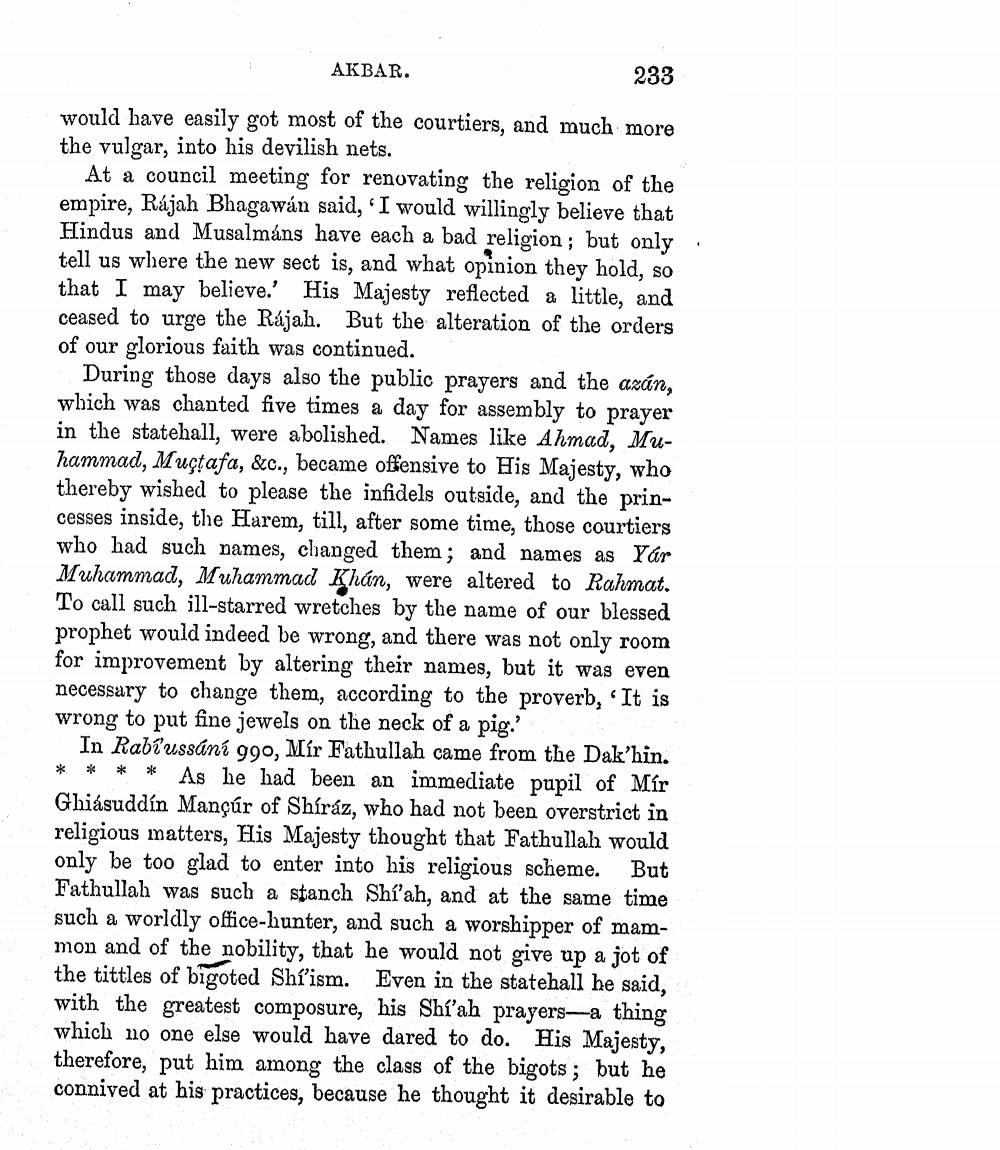________________
AKBAR.
233
DUI Deus.
would have easily got most of the courtiers, and much more the vulgar, into his deyilish nets.
At a council meeting for renovating the religion of the empire, Rájah Bhagawán said, 'I would willingly believe that Hindus and Musalmáns have each a bad religion ; but only tell us where the new sect is, and what opinion they hold, so that I may believe.' His Majesty reflected a little, and ceased to urge the Rajah. But the alteration of the orders of our glorious faith was continued.
During those days also the public prayers and the azán, which was chanted five times a day for assembly to prayer in the statehall, were abolished. Names like Ahmad, Muhammad, Muçtafa, &c., became offensive to His Majesty, who thereby wished to please the infidels outside, and the princesses inside, the Harem, till, after some time, those courtiers who had such names, changed them; and names as Yár Muhammad, Muhammad Khán, were altered to Rahmat. To call such ill-starred wretches by the name of our blessed prophet would indeed be wrong, and there was not only room for improvement by altering their names, but it was even necessary to change them, according to the proverb, "It is wrong to put fine jewels on the neck of a pig.'
In Rabiussání 990, Mír Fathullah came from the Dak’hin. * * * * As he had been an immediate pupil of Mír Ghiásuddin Mancúr of Shíráz, who had not been overstrict in religious matters, His Majesty thought that Fathullah would only be too glad to enter into his religious scheme. But Fathullah was such a stanch Shi'ah, and at the same time such a worldly office-hunter, and such a worshipper of mammon and of the nobility, that he would not give up a jot of the tittles of bigoted Shi'ism. Even in the statehall he said, with the greatest composure, his Shi'ah prayers-a thing which no one else would have dared to do. His Majesty, therefore, put him among the class of the bigots; but he connived at his practices, because he thought it desirable to




